Join us as we officially kick off the first day of the 2024 Prosecution Conference with our welcome remarks. Our co-hosts, Kathy Duncan and Kerri Thomson, will set the stage for what’s to come, highlight day one’s education, and share important information to help you make the most of the experience. We’re excited to have you with us and can’t wait to embark on this journey together!
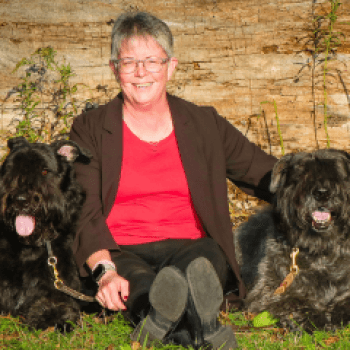

Members of the World Link Coalition will be presenting on their history of joint animal and child welfare advocacy as well as their latest projects. Their work started as an examination of the harmful impact the mass killing of stray dogs in Romania had on children and has evolved to center around developing research and policy to advocate for both children and animals on a global scale.
Most recently, they presented research to the United Nations Committee on the Rights of the Children, which elevated animal welfare as a children’s rights issue and resulted in the inclusion of language in General Comment 26 (2023), which states that ‘children must be protected from all forms of physical and psychological violence and from exposure to violence, such as domestic violence or violence inflicted on animals’ under G.35.
This is the first time violence against animals and childhood exposure to animal cruelty have been jointly addressed from a legal perspective in a binding human rights charter and in one that has been ratified by almost 200 countries. As Canada is a signatory of the UN Convention on the Rights of the Child, this session will introduce ways that prosecutors of animal abuse files can cite this clause and relevant research findings in support of their legal arguments for cases where there has been exposure of children to animal cruelty.


Take a moment to recharge before our next sessions begin. Use this time to grab a glass of water, a cup of coffee, or a quick snack. Stretch your legs, clear your mind, and get ready for the upcoming sessions. Make the most of this break to stay focused and engaged!
Increasing recognition of animal sentience and sentencing that follow the principles of denunciation and deterrence continue to move forward, with many courts across the country following the 2021 decision in R v Chen. Join prosecutors for a deeper dive into animal abuse cases and their decisions from the past year.
There will be time for attendee questions after the case review.
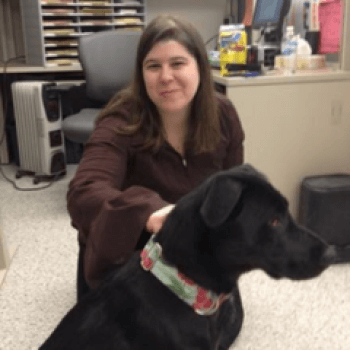
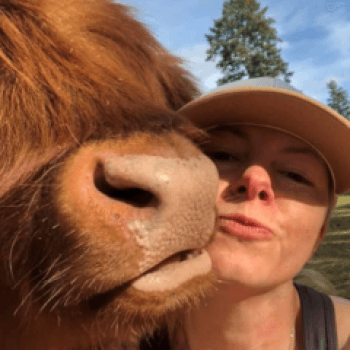

Use this time to step away from the screen and enjoy a well-deserved lunch break! This is the perfect opportunity to refuel with a delicious meal, hydrate, and relax.
You can also take this time to connect with fellow attendees, forge new connections, or chat informally over lunch.
Join us for an insightful session led by two of Canada’s foremost veterinary forensic experts. This presentation will explore the vital role of forensic veterinarians in investigating animal cruelty, encompassing examinations of both live victims and necropsies of deceased animals. Understanding the nuances of forensic veterinary science is essential for building strong cases, especially when external signs of abuse are absent.
This session aims to equip prosecutors and law enforcement officers with the knowledge and tools necessary to effectively utilize veterinary forensics in their animal cruelty investigations, ultimately enhancing their ability to secure justice for vulnerable animals. Don’t miss this opportunity to deepen your understanding of this critical field!
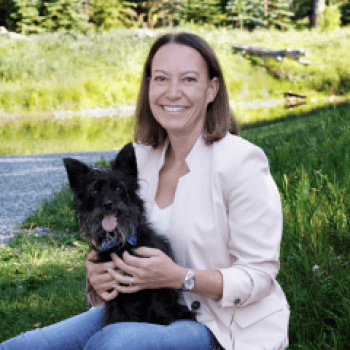

Attendees will continue to delve into veterinary forensics with an introduction to the approach taken by US-based National Animal Care and Control Association (NACA), in conjunction with the University of Florida’s Maples Center for Forensic Medicine. Their training on animal crime forensics includes an emphasis on compassionate animal control work and is designed to elevate skills in investigating and addressing animal cruelty cases while promoting humane treatment and care to people and pets.
Attendees will learn how they may apply these concepts to their own work in animal cruelty investigations and prosecutions, and what NACA has planned for the future.

Take a moment to recharge before our next sessions begin. Use this time to grab a glass of water, a cup of coffee, or a quick snack. Stretch your legs, clear your mind, and get ready for the upcoming sessions. Make the most of this break to stay focused and engaged!
This session will introduce attendees to the work of Justice Facility Dogs in the Canadian Criminal Justice System (CJS), where you will learn about the established International Best Practice that speaks to the skills and qualifications handlers and dogs must have in this work. You will learn about how testimonial aids are utilized in the CJS, what the criteria are for dogs to be utilized in court and the steps taken to grant access to dogs and their handlers.
Kim will share some anecdotal stories from both her experience and others who do this valuable work across Canada. Finally, attendees will learn about the mission and purpose of a new organization called Justice Facility Dogs Canada.
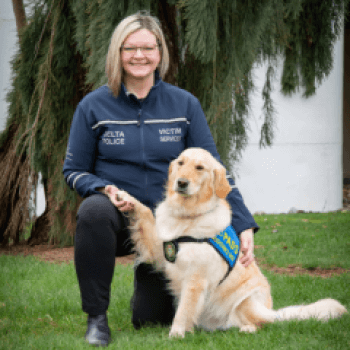
Our co-hosts, Kathy Duncan and Kerri Thomson, will return to the stage as we conclude the first day of the conference by taking a few moments to reflect on the valuable insights and connections they've made. Rest up, recharge, and get ready for another exciting day of informative sessions. We look forward to continuing this journey with you on Day 2!


Join us as we begin day two of the 2024 Prosecution Conference with our welcome remarks! Our co-hosts, Kathy Duncan and Kerri Thomson, will set the stage for what’s to come, highlight day two’s education, and share important information to help you make the most of the experience. We’re excited to have you back with us for day two and can’t wait to continue this journey together!


The construction, interpretation and enforcement of laws are products of political decisions and the culture of those governed by them. Political decision-making and the wider culture of a society are in turn influenced by moral views, including views on human obligations towards animals.
The goal of this session is to present the different views on animal ethics found in modern Western societies and how these views influence and are influenced by animal welfare legislation. Dr. Sandøe will argue that animal welfare legislation typically does not reflect a specific position in animal ethics but rather can be seen as a way of enabling a compromise or finding a common denominator between different positions that are endorsed by diverse groups in society.

Take a moment to recharge before our next sessions begin. Use this time to grab a glass of water, a cup of coffee, or a quick snack. Stretch your legs, clear your mind, and get ready for the upcoming sessions. Make the most of this break to stay focused and engaged!
Animal Protection work can be incredibly dangerous both from mental health and physical safety perspectives. Compassion fatigue, vicarious trauma and suicide are real risks of taking on this noble profession. On top of the mental challenges, there lies a potential for physical danger in handling animals and for those confronting the public with animal welfare concerns, especially when removal of an animal is necessary.
Violence does not occur in a vacuum and animal abusers can be hostile and assaultive when interfacing with law enforcement. Despite the scarce nature of resources in the not-for-profit world, it is crucial that employers are cognizant of the risks posed to their enforcement staff and proactive in managing that risk through training, personal protective equipment and policy and procedure.
Calgary Humane Society has learned valuable lessons from some close calls and a local tragedy culminating in a fatality inquiry and has implemented measures to mitigate threats to mental health and physical well-being. This presentation will be valuable not only for law and animal welfare enforcement officers responding to animal cruelty calls, but also for prosecutors to better understand the physical and mental risks involved in this work.

Use this time to step away from the screen and enjoy a well-deserved lunch break! This is the perfect opportunity to refuel with a delicious meal, hydrate, and relax. Don’t forget to take this time to connect with fellow attendees, forge new connections, or chat informally over lunch.
Child sexual abuse and exploitation and animal sexual abuse are often correlated. When both crimes are involved in a case, a community and/or victim impact statement can be a significant and effective way in which to educate the court and others on the individual and societal impacts.
Since 2016, the Canadian Centre for Child Protection (C3P) has been submitting community impact statements in sentencing cases across Canada that involve child sexual abuse and exploitation, and it spearheaded an initiative to submit victim impact statements on behalf of survivors of child sexual abuse material in cases involving access, possession and distribution of such material. C3P has also supported other organizations and survivor groups to author statements representing their communities. Lawyers from C3P will explain the history and evolution of these initiatives, along with considerations in crafting effective statements that are admissible, with tips on what to include (and what not to). They will also offer some highlights from their latest research into the production of child sexual abuse material in Canada, and the correlations found between that crime and animal sexual abuse crimes.
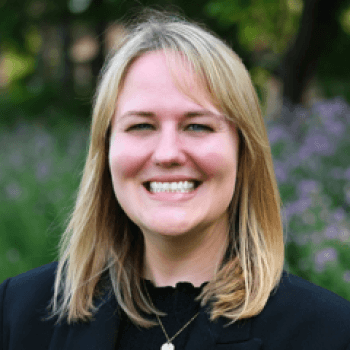

Historically, animal cruelty prosecutions have been laid in cases where there is physical evidence of physical harm. However, since 2014, the definition of animal suffering has been expanded in dozens of animal cruelty cases in Canada, to consider vastly more forms of suffering – specifically, more than 30 negative emotions and negative sensations. This has not only impacted the type of cases that are prosecuted, but also sentencing outcomes for those found guilty. In order to achieve this, it has been essential to help investigators, prosecutors, and the triers of fact to understand how to assess affective states in animals.
This session will provide a brief summary of how case law over the past 10 years has expanded to reflect these scientific perspectives, not just in Canada, but also internationally. Then, we will review scientific studies either recently published or underway, which have the potential to expand the type of cases that are prosecuted even further.

Our co-hosts, Kathy Duncan and Kerri Thomson, will return to the stage as they conclude the final day of the conference by taking a few moments to reflect on the new ideas and takeaways from the last two days. Stay tuned for updates on how to stay involved as we continue to work together to ensure that crimes against animals are prosecuted effectively and efficiently.



